Opinions on empowering principals to choose textbooks
(Baonghean.vn) - After the Ministry of Education and Training announced 32 textbooks, the issue of choosing which set of textbooks for the next school year is currently of concern to localities. Nghe An Newspaper has also recorded the opinions of a number of officials and teachers on this issue.
Master Pham Dinh Hoa - Head of Primary School Department - Nghe An College of Education:
Textbook Selection CouncilRight "immerse oneself in elementary school
If the local authorities are left to choose textbooks, there are two difficulties. The first difficulty is the imbalance between regions due to the level of teachers and students, because teachers and students in central areas such as Vinh city, Dien Chau will be much different from teachers and students in Ky Son, Tuong Duong. The second is choosing textbooks and then choosing how to teach in accordance with the textbooks is extremely difficult.
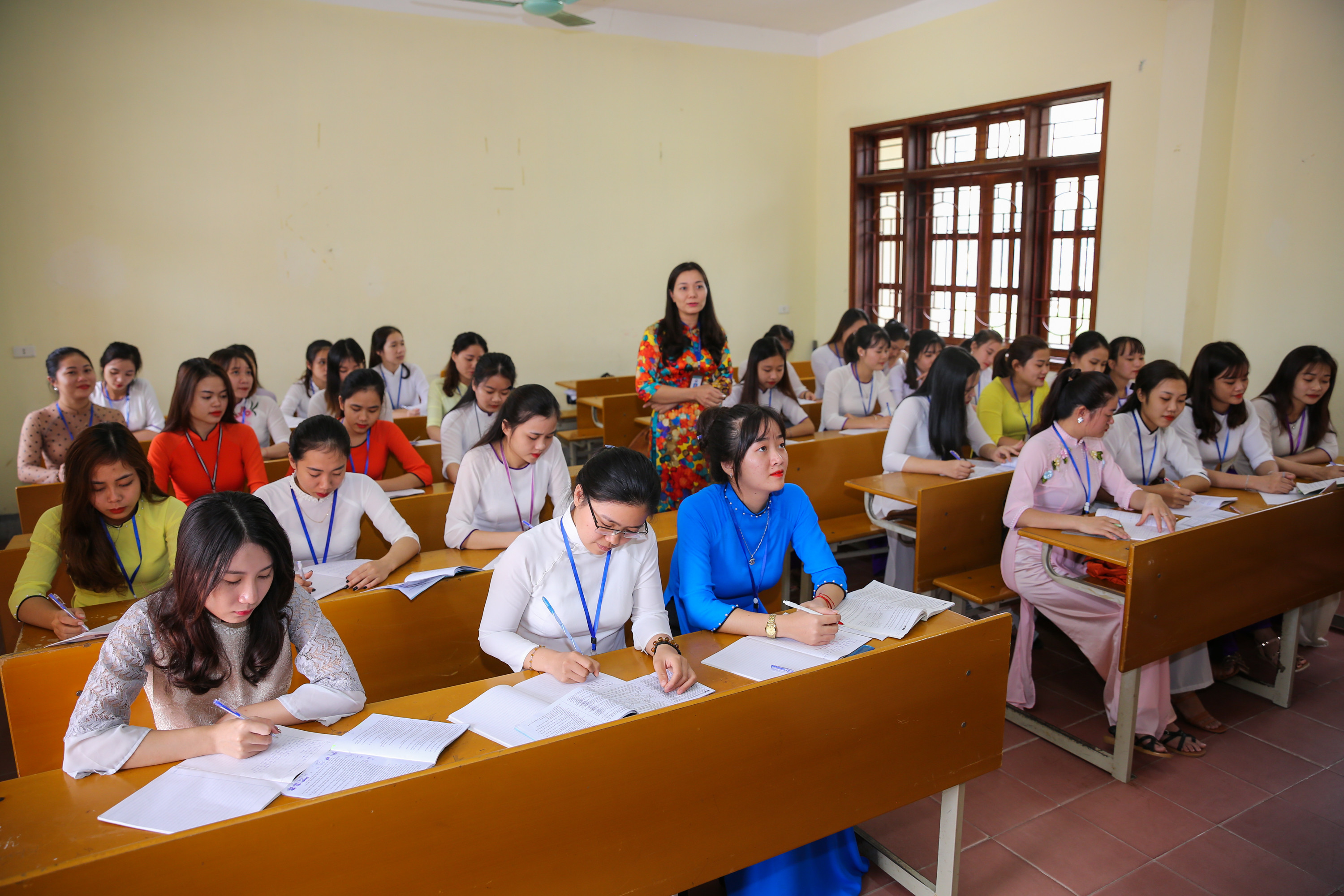 |
| Class time of students at Nghe An 2 College of Education. Photo: Duc Anh |
At present, being given autonomy to choose textbooks is both difficult and challenging, but also advantageous. The first advantage is that about 20% of the program is for local use, and this choice will help us bring the characteristics and basic features of Nghe An culture to students, to build a tradition of studiousness and revolutionary tradition. The second advantage is that because of the choice, teachers can refer to many programs to suit the level of competence of each region.
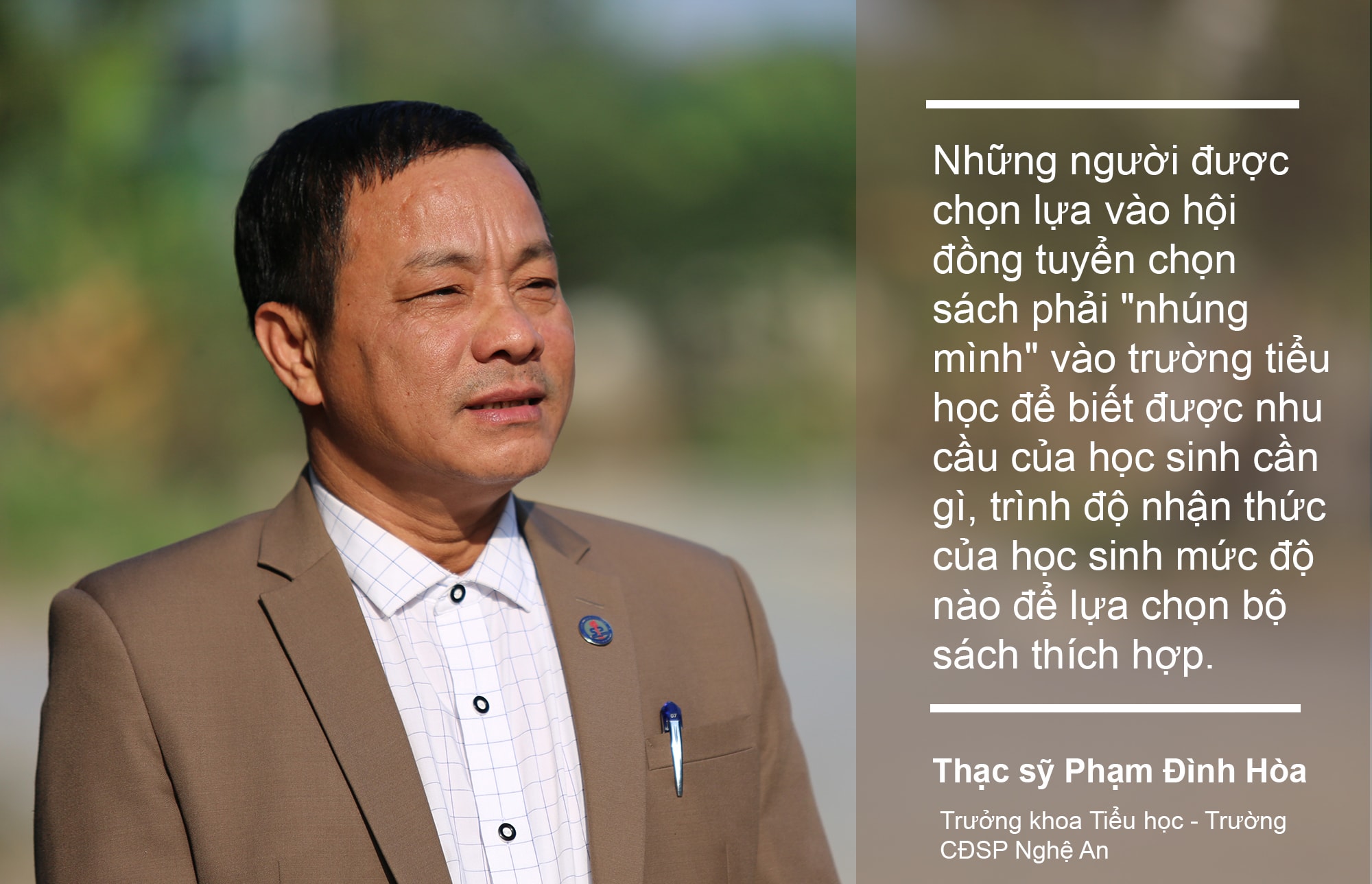 |
| Master Pham Dinh Hoa. Photo: Duc Anh |
To verify textbooks, the Ministry has issued quite specific and thoughtful documents. However, to select books, provincial and department leaders must unify opinions from lecturers, teachers, parents, students and from many sources of information to suit each locality.
If the book sets are not similar, the choice will be difficult because it is also related to the year-end assessment.
Therefore, those selected for the book selection committee must be truly dedicated, have vision, work with qualifications, have capacity, but must be passionate about the profession and must have practice. That is, must "immerse" themselves in primary schools to know what the needs of students need, what level of students' awareness is to choose the appropriate set of books and most importantly, the set of books must be able to evaluate the development of students' abilities.
Assoc. Prof. Dr. Thai Huy Vinh - Member of the National Assessment Council for Math Textbook Grade 1 - former Deputy Director of the Department of Education and Training:
"Giving responsibility to the principal can be stressful, but that's how innovation happens."
In the general education innovation program, the Ministry of Education and Training advocates a program with many sets of books. Although each book is written with a different idea, material and creativity, they all follow the regulations of Circular 32 on General Education Program Innovation, meeting the program output standards and teaching orientation to approach qualities and abilities.
As for the Math 1 textbooks according to the new program, there are new points compared to the current program. Firstly, the form is more beautiful, more attractive, the text and image channels are more suitable and the languages used in the textbooks are suitable for students' psychology, ensuring connection, consistency between grades from grade 1 to grade 12.
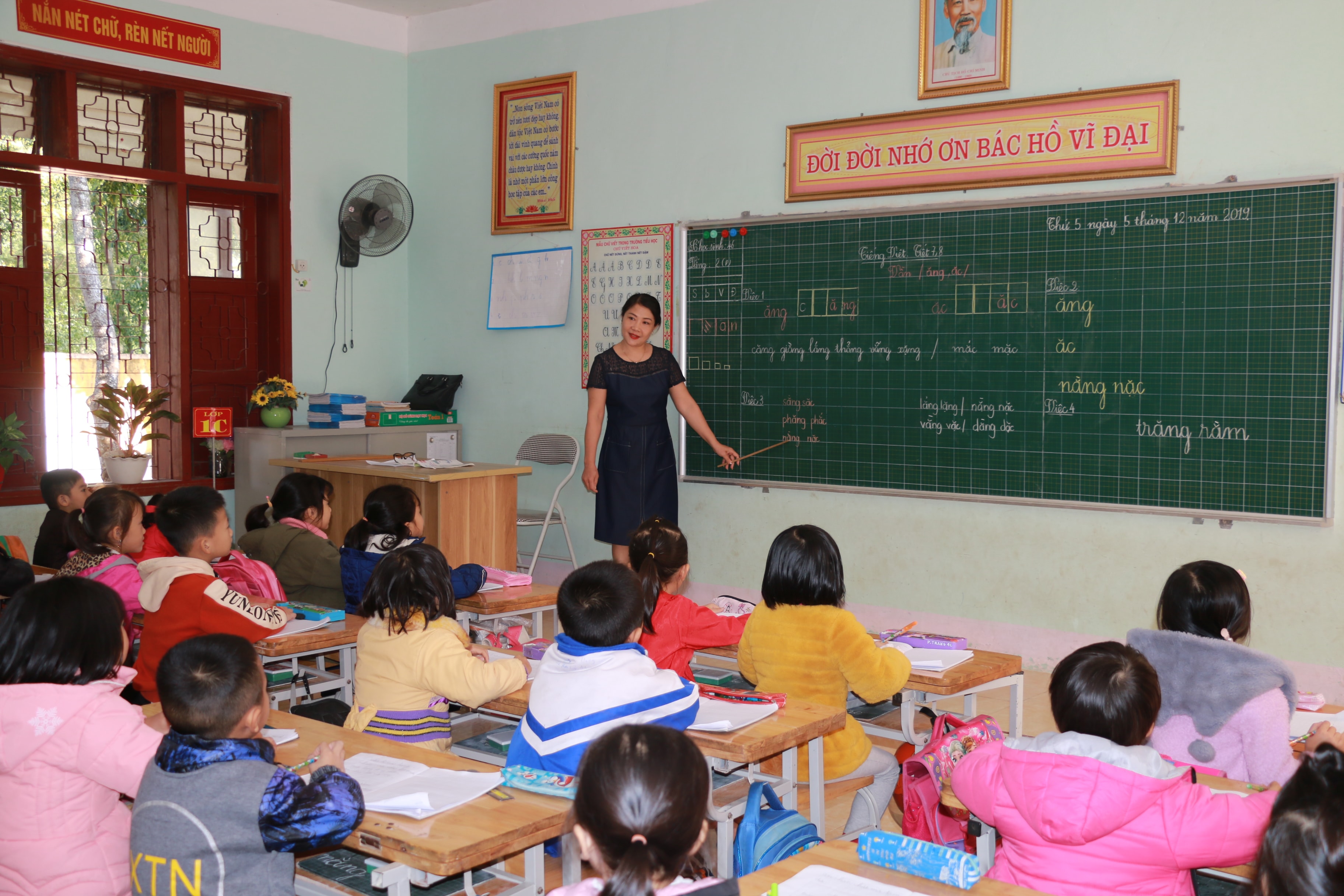 |
| Class time of first graders at Nghi Thu Primary School, Cua Lo town. Photo: My Ha |
Third, it ensures high differentiation, with the same set of books but ensuring the core, compulsory for all students nationwide in all regions, while ensuring for students with difficult circumstances, disabilities, and even gifted students in favorable areas.
Fourth, the compiled books are open-ended, allowing teachers to be creative and promoting students' learning abilities through practice exercises, quizzes, and additional lessons.
Fifth, the content of the book ensures innovation in teaching methods as well as assessment of students' learning ability. The content of the book requires teachers to organize experiential activities with steps of initiation, exploration, practice and application. The lessons must meet output knowledge standards.
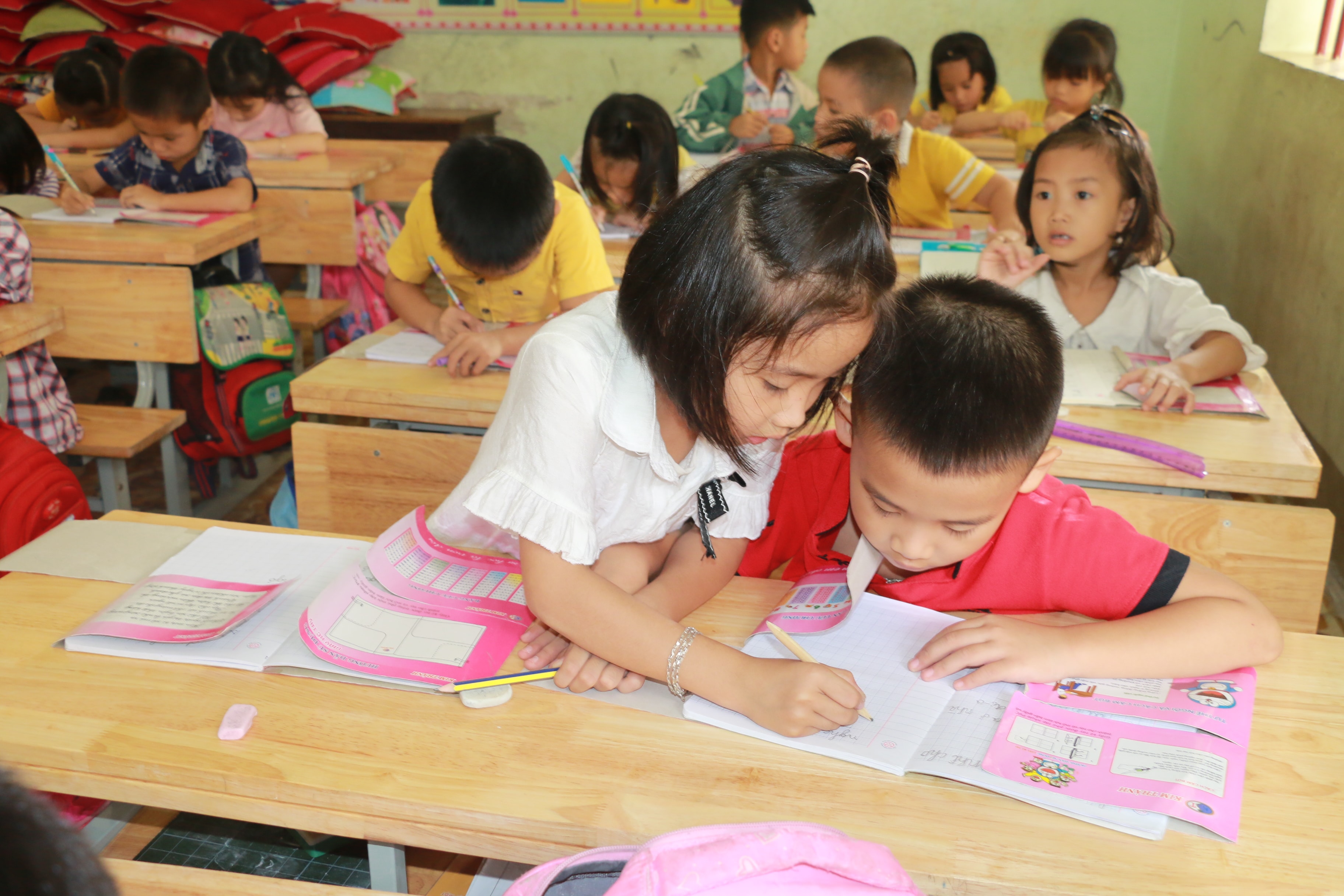 |
| First grade students of Quang Son Primary School - Do Luong. Photo: My Ha |
Currently, if implementing Resolution No. 88/2014/QH13 dated November 28, 2014 of the National Assembly, the Ministry will certainly have a document with systematic and scientific guidance. However, to implement well, the Department of Education and Training and the departments must strictly direct according to regulations and the principals must be truly impartial, objective, and listen to opinions to choose the right set of books for their students and suitable for the local situation.
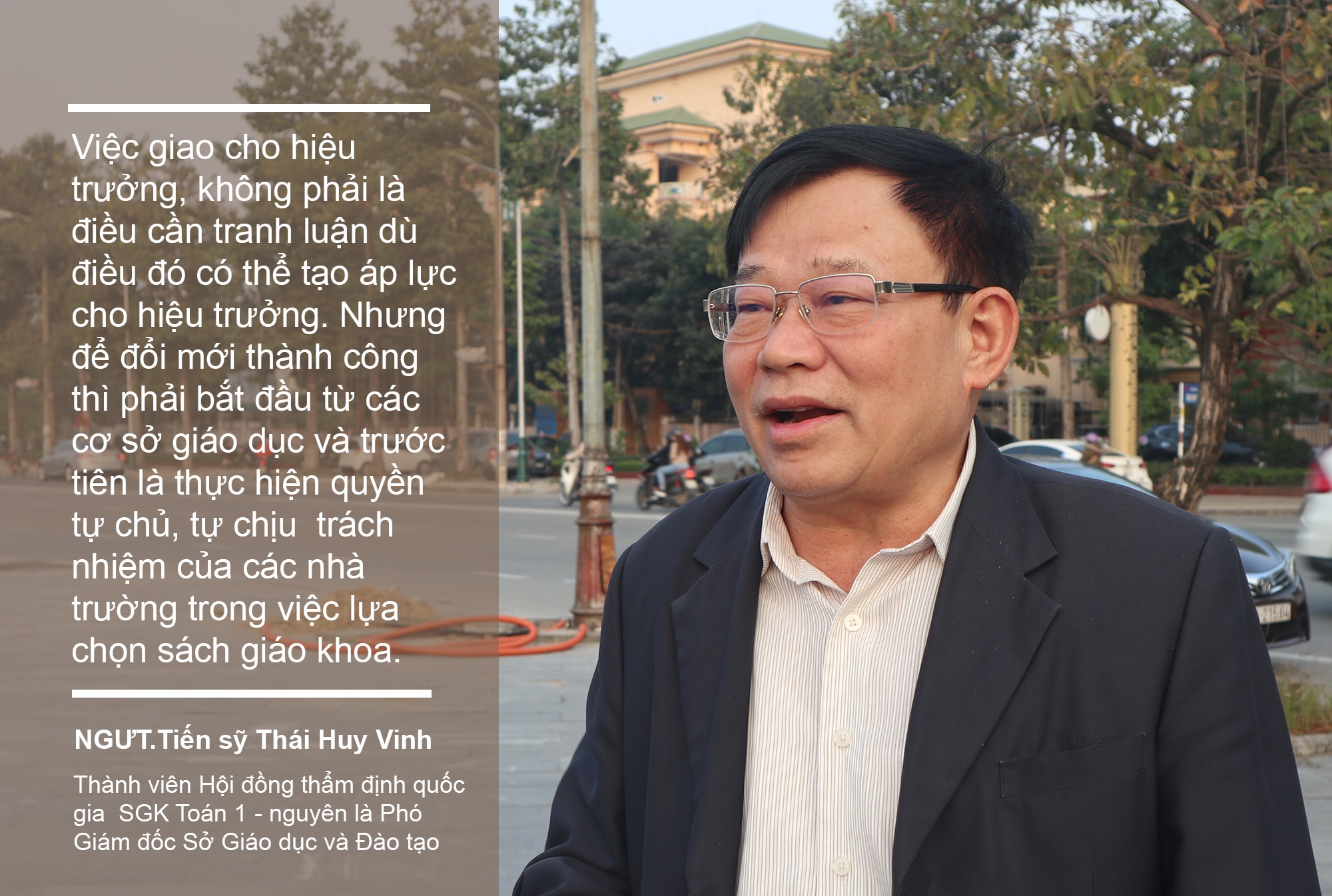 |
| Dr. Thai Huy Vinh. Photo: My Ha |
Besides, no matter what method is used, it must be based on the opinions of teachers, parents, and students, which is the most important. At present, assigning the task to the principal is not a matter of debate, although it may put pressure on the principal, but to successfully innovate, it must start from educational institutions and first of all, implement the autonomy and self-responsibility of schools in choosing textbooks.
Reality also shows that the most difficult thing in renewing the general education program is the team of teachers. These must be truly capable, qualified and responsible people, must know how to choose materials, choose knowledge content, innovate teaching methods, and innovate student assessment.
In Nghe An, the current problem is that the level of teachers is not uniform, some places are lacking or weak. In addition, the current management mechanism, student numbers, school size, facilities, teaching equipment and decentralization of management still have many shortcomings, making implementation difficult...
The 2019 Education Law stipulates that the Provincial People's Committee decides on the selection of textbooks for stable use in general education institutions in the area according to the regulations of the Minister of Education and Training. However, the 2019 Education Law will not take effect until July 1, 2020, while textbooks must be selected from the beginning of 2020 and the results announced before March 31, 2020 to promptly provide textbooks for the 2020-2021 school year, thus causing many difficulties.
Faced with this issue, in early December 2020, the Ministry of Education and Training issued a Draft Circular guiding the selection of textbooks in general education institutions from the 2020-2021 school year according to Resolution No. 88/2014/QH13 dated November 28, 2014 of the National Assembly.
The Draft Circular stipulates the principles, criteria, Councils, and procedures for selecting textbooks for general education institutions and the responsibilities of relevant parties in selecting textbooks for use in general education institutions.
Accordingly, the textbook selection council is established by the head of the general education institution, including the Chairman of the Council - who is the head of the educational institution; the Vice Chairman of the Council is the deputy head or head of the professional group; the Secretary of the Council is the head of the professional group; the Council member is the head of the professional group, the representative of the teachers teaching the subjects, and the representative of the school's Parents' Representative Board.


